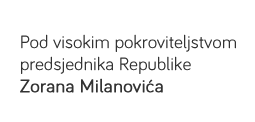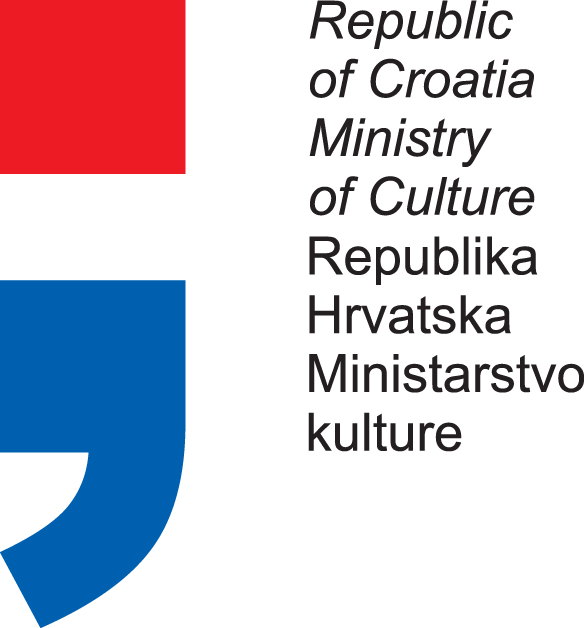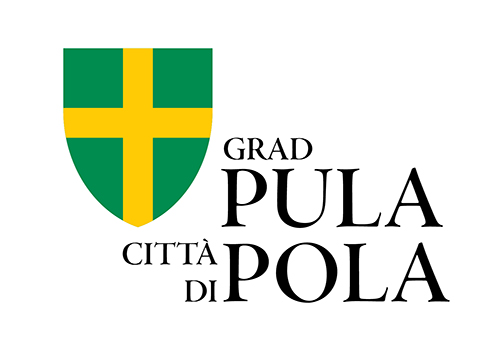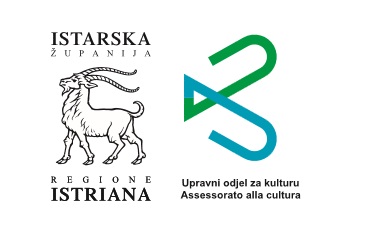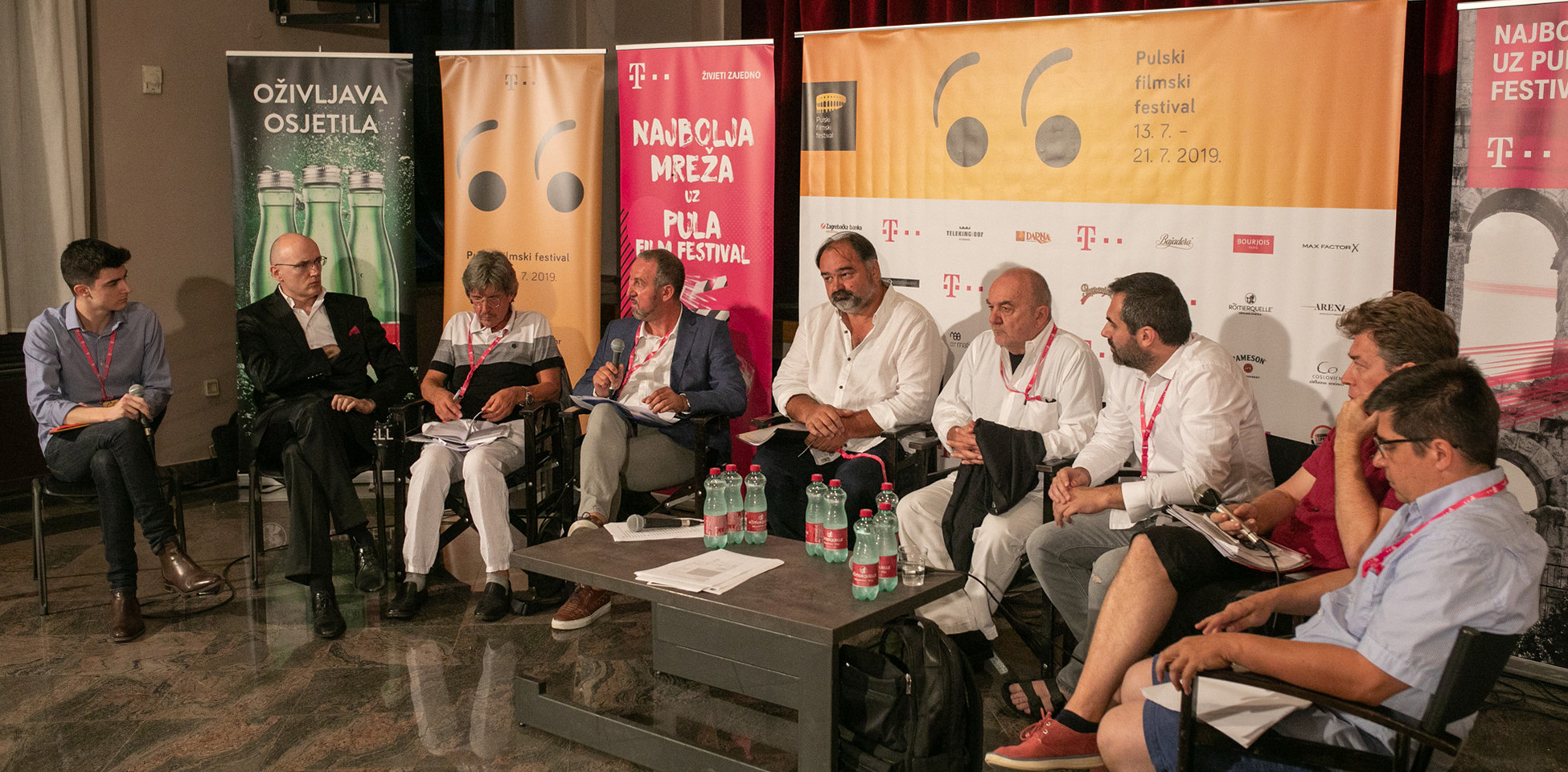
On Thursday 18 July at 7 p.m., a round table was held as part of the Industry Programme of the 66th Pula Film Festival, with a focus on the construction of a film studio in Croatia. The moderator of the round table was the head of the industry programmes Bruno Mustić, with participation from the director of the Croatian Audiovisual Centre (HAVC) Chris Marcich, president of the Filmmakers Association of Croatia Ivan-Goran Vitez, researcher at the Institute of Public Finance Anto Bajo, producer Damir Terešak, producer Danijel Pek, producer Hrvoje Matasović, and producer Jozo Patljak.
Artistic Director Zlatko Vidačković pointed out that this round table is just the start of the Industry Programme of the Festival, in which directors and selectors of prominent international festivals - from Cannes and Berlin to Busano and Palm Springs - international distributers and sales agents, regional film centre directors, and foreign press and critics will have the opportunity to watch all this year’s Croatian feature films, and participate in an international round table on audience development and a panel discussion on professional valorisation of today’s Croatian cinema in the European and global context.
Chris Marcich initiated the discussion by emphasising the need for a thorough feasibility study for a project such as this one.
Anto Bajlo of the Institute for Public Finance analysed the effectiveness of state incentives in the film industry. “For each kuna of disbursed incentives, 90% is paid back into the state budget in the form of VAT and income tax”, he said.
Hrvoje Matasović pointed out the difference between the need of Croatian filmmakers and foreign productions. Foreign filmmakers mostly need several sets, and the needs of Croatian film will determine the direction and the plan for developing domestic production. Matasović thinks the studio should also have a postproduction department in order for the productions to stay in Croatia longer and therefore be more beneficial.
Jozo Patljak built on the discussion and asked what the economic viability of such a studio would be, and whether it is Croatian film that needs it or focus should be placed on foreign productions.
Damir Terešak affirmed the need to construct a studio. “We still need to see what kind of a model we should opt for so that the studio could be used for both foreign productions and Croatian film. The construction of a studio is a necessity, as it will allow us to offer the whole package to foreign productions who currently choose other countries for interior filming because we do not have a studio.”
Anto Bajo presented his analysis of the number of filming days in Croatia and the productions that are continually growing. He emphasised that in the period from 2012 to 2018, the number of filmmakers has significantly increased (from 395 in 2012 to 1,196 in 2018), as has the number of extras (from 1,753 in 2012 to approximately 4,500 in 2018), as well as the number of filming days - a total of 346 in a calendar year.
Ivan-Goran Vitez thinks Croatia is an ideal filming location, as it offers diversity in just a half a day’s drive. Large productions need a studio because of the controlled conditions it offers. The Filmmakers Association of Croatia is interested in educational workshops and participation of the people who are new to the film industry during the process of constructing the studio.
The round table also saw a discussion about the possible location of the studio. Participants agreed that it should not be in a city itself, but should be accessible by plane or other modes of transport.”The studio needs to be in Zagreb because most of the filmmakers are in Zagreb, but also because of the cost-effectiveness of travel and accommodation of film crews”, said Damir Terešak and emphasised that Zagreb is quite close to Venice, Vienna, and Budapest and can be accessed easily, which foreign producers find very attractive.
Vitez said that the Filmmakers Association of Croatia is establishing a branch in Split due to the large interest of foreign productions for Croatia’s coastal region and the large number of filmmakers working in the region thanks to previous productions such as Game of Thrones, Mamma Mia, etc.
Danijel Pek said we should be thinking about how the studio can best contribute to the Croatian film industry and that we have to consider more than just the financial viability. This studio can completely change the Croatian film industry. Pek gave the example of Estonia, where a film studio is set to open next year, and where the entire audiovisual industry of the country was involved in constructing the studio, with the help of incentives from the state and the EU.
Chris Marcich wrapped up the round table by saying that this project has a great chance to become a project of national interest, and pointed out that several foreign investors are interested and have already come to inspect Croatia. “But first, the feasibility study”, Marcich said.

